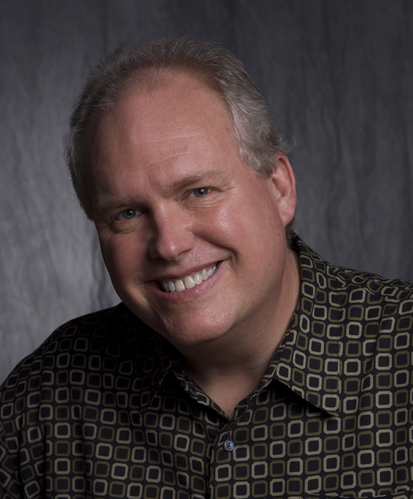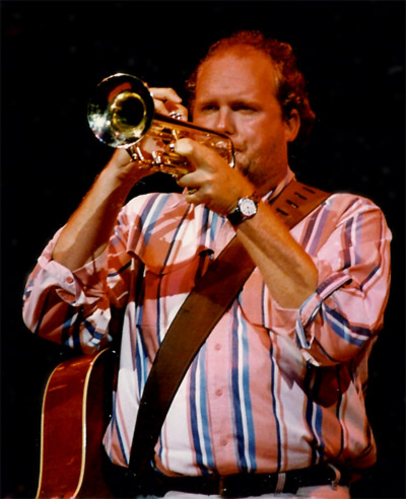Alumni Profile: Big John Howell '82

Big John Howell '82

Howell still plays the trumpet with his Born to Boogie Band.
Trumpeter John Howell came to Berklee from small-town Michigan with bandleader experience already under his belt. But he had too much ambition for one road. He wrote and arranged music, told jokes between songs, rehabbed instruments—even sold popcorn. When he discovered radio, the jack of all trades became a master of one.
Howell has since spent 20 years working as a Chicago music DJ and personality, including a stint on national network Westwood One. Still looking for new challenges, he recently switched over to political talk radio and now cohosts a show on Chicago's AM 560 WIND. Here's a condensed and edited discussion of his career path.
What was your performance experience like in Boston?
I always led bands. I had a lot of work. I used to play at this big disco in Kenmore Square, essentially as a KC and the Sunshine cover band. People would rollerskate around you. I played in a strip club in a basement in the Combat Zone. I'd rent a car and go up to Keene, New Hampshire or down to Hyannisport. I would talk to the club owners and promise them the best band at a great price. Better players were probably working on their craft while I was looking to get my next gig.
After Berklee, what did you do?
I went on the road. I ended up at a circus/magic show out of Orlando for almost a year—driving a truck and selling popcorn, writing and arranging the music, playing between 11 and 20 shows a week. Phil Wilson's arranging course . . . I certainly made my money off that!
How come you didn't stick with performing?
I just wasn't that good. I was always the top of the B guys at Berklee. I was in the same class as Branford Marsalis. [One professor]—I had him for this pop/rock composition course—I told him, "I'm a trumpet player." He said, "Oh, you mean you're a cab driver. Are you one of the best?" I wasn't. He said, "You're definitely a cab driver." I was stunned but, you know, it was the truth. I started taking all these academic courses. I'd seen the light.
It was the end of a dream. I'd had that horn on my face for the better part of a decade. When I left my hometown I was the best—to be honest with you, I was the second best. But in my first weeks here I was hearing guys who were light-years ahead of me. I was in a songwriting class with Melissa Etheridge. I was writing "Dick and Jane Went up the Hill," and she was writing War and Peace in three minutes.
Immediately I had to figure out how to adapt. It was humbling, but it's also invigorating. I think that's why I've been successful: Berklee taught me how to adapt. I was able to think outside the box and take whatever talent I had to the next level.
The key thing Berklee taught me was self-sufficiency. If you didn't evolve, you'd die. I bought old instruments, refurbished them, sold them. I learned how to publish. I learned how to copyright.
How did you find your way to radio?
I was back in western Michigan because my mom had passed away and I was hanging out with my dad. I knew the first day I was on the radio I was better than anyone else. Or rather, I knew I could do something here. It built on my strengths—being entertaining and funny.
I believe that a great air personality on the radio has a certain rhythm. I use the analysis all the time of a rhythm section and a couple solos. Don't ruin the groove. If someone's soloing, stay off it. Great speakers, politicians, comedians—they all have a certain rhythm. It has to have a certain musicality to catch a listener's ear. It don't mean a thing if it ain't got that swing!
Do you still play music?
I almost think of myself, still, as a bandleader who happens to do radio. I still do gigs with the Born to Boogie Band. I have the horn on my face a few times every week. I'm kind of back to square one—I'm playing jazz clubs and telling corny jokes between songs! But I hire great players. I'm by far the weakest. I don't inflict long, ponderous trumpet solos on the audience.
